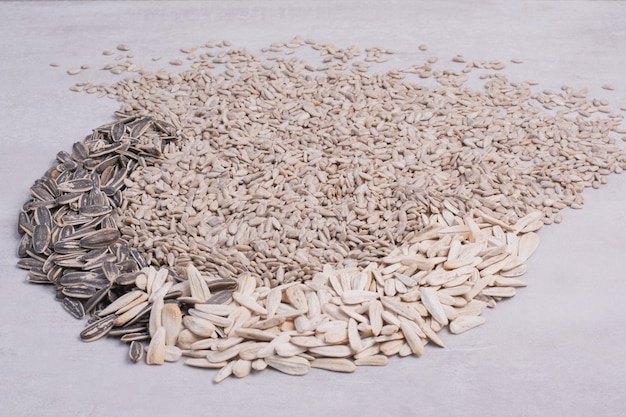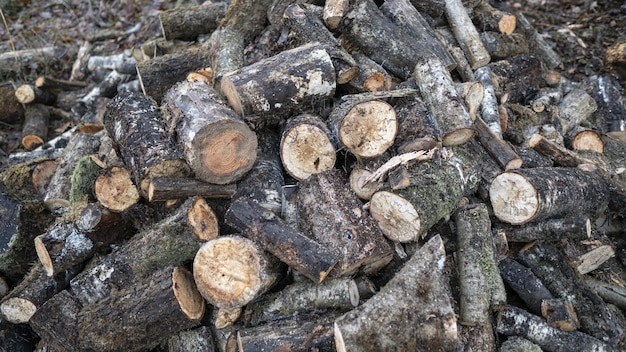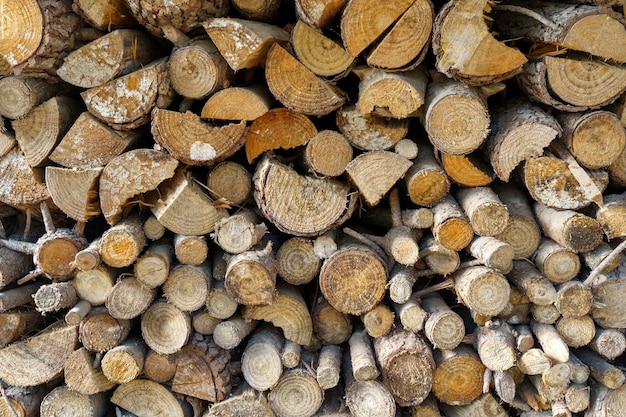Are Wood Pellets a Fire Hazard?
Wood pellets are a popular choice for heating homes and businesses in the UK. They are considered a more sustainable and environmentally friendly alternative to fossil fuels. However, concerns have been raised about the potential fire hazards associated with using wood pellets as a fuel source. In this article, we will explore the question: Are wood pellets a fire hazard?
Understanding Wood Pellets
Wood pellets are small, cylindrical pieces of compressed wood residue that are used as a fuel in pellet stoves and boilers. They are made from sawdust, wood shavings, or other wood waste materials, which are then processed and compressed into compact pellets. The production process removes moisture from the pellets, resulting in a highly efficient fuel source.
The Potential Fire Hazards
While wood pellets themselves are not inherently flammable, there are certain factors that can increase the risk of fire when using them. One such factor is poor storage and handling practices. Improperly stored wood pellets can be a fire hazard if they are exposed to heat sources or if they come into contact with flammable materials.
Storage Safety Measures
To minimize the risk of fire, it is important to store wood pellets in a dry, well-ventilated area away from sources of ignition. This means keeping them away from open flames, electrical outlets, and other heat-producing appliances. It is also crucial to ensure that the storage area is clear of any flammable substances or debris.
Preventing Ignition
Another potential fire hazard associated with wood pellets is the possibility of ignition during the combustion process. When using wood pellet stoves or boilers, it is important to follow the manufacturer’s guidelines and maintain proper maintenance and cleaning routines. Regular chimney cleaning and inspection can help prevent the buildup of creosote, which is a highly flammable substance.
Fire Safety Equipment
Having the appropriate fire safety equipment, such as smoke detectors and fire extinguishers, is essential when using wood pellets as a fuel source. Smoke detectors should be installed near the storage area and in every level of the building. Fire extinguishers should be easily accessible and regularly inspected to ensure they are in working order.
“It is important to take proper precautions when using wood pellets as a fuel source to minimize the risk of fire hazards.”
Do Wood Pellets Give Off Carbon Monoxide?
Wood pellets have gained popularity as a sustainable and eco-friendly fuel source. They are commonly used in wood pellet stoves and boilers for heating purposes. However, one concern that many people have is whether wood pellets give off carbon monoxide (CO), a dangerous gas that can be harmful to human health.
Understanding Carbon Monoxide
Carbon monoxide is a colorless, odorless, and tasteless gas that is produced when fuels like wood, gas, oil, or coal are burned incompletely. It is important to note that any combustion process, including the burning of wood pellets, can produce carbon monoxide as a byproduct.
Wood Pellets and Carbon Monoxide
While it is true that wood pellets can emit carbon monoxide during combustion, the risk is minimal when compared to other fuel sources. Wood pellets are highly efficient and burn cleanly when appropriately used in modern pellet stoves or boilers that are properly installed and maintained.
Proper ventilation and regular maintenance are crucial to ensuring the safe use of wood pellets. Regularly cleaning your stove or boiler, inspecting the flue system, and ensuring adequate air supply are essential steps to minimize the production of carbon monoxide and to keep you and your family safe.
Preventing Carbon Monoxide Poisoning
While the risk of carbon monoxide poisoning from wood pellets is low, it’s important to remain cautious and take preventive measures. Here are some tips to reduce the risk:
- Install a carbon monoxide alarm: A quality CO detector should be installed near the pellet stove or boiler.
- Ensure proper ventilation: Make sure the room is adequately ventilated to allow the escape of any potential carbon monoxide.
- Regularly service your heating system: Schedule regular maintenance checks by a qualified technician to identify and address any potential issues.
Remember, the best way to prevent carbon monoxide poisoning is through awareness, proper installation, and regular maintenance of your wood pellet heating system.
In conclusion, while wood pellets can produce carbon monoxide when burned incompletely, the risk is minimal when using modern pellet stoves or boilers. By taking necessary precautions and ensuring proper ventilation and maintenance, you can safely enjoy the benefits of wood pellet heating without worrying about carbon monoxide risks.
Are there chemicals in wood pellets?
Wood pellets are a popular choice for households in the UK as an alternative fuel source for heating. They are made from compressed sawdust and offer a renewable and sustainable option for heating homes. However, there are concerns about whether wood pellets contain chemicals that could be harmful to health.
What are wood pellets made of?
Wood pellets are typically made from waste materials such as sawdust, wood shavings, and wood chips. These materials are compressed under high pressure, which helps to bind them together without the need for any chemicals or additives. As a result, wood pellets are generally considered to be a natural and chemical-free fuel source.
Quality standards and regulations
In the UK, wood pellets used for heating purposes must meet certain quality standards and regulations to ensure their safety and efficiency. These standards, such as the ENplus certification, require wood pellets to be free from contaminants and harmful substances. The certification ensures that wood pellets are produced from sustainably sourced wood and do not contain any harmful chemicals.
Benefits of using wood pellets
Using wood pellets as a fuel source offers several benefits. Firstly, they are a renewable energy source as they are made from waste materials. This helps to reduce reliance on fossil fuels and decrease carbon emissions. Additionally, wood pellets are cost-effective compared to other fuel sources such as gas or oil.
“Wood pellets are considered to be a clean and environmentally friendly fuel option for heating homes.”
Are Pellet Smokers Unhealthy?
Pellet smokers have gained popularity among barbecue enthusiasts in recent years due to their convenience and ability to add unique smoky flavors to food. However, there have been concerns about whether using pellet smokers can be detrimental to one’s health. Let’s take a closer look at the potential health effects associated with using these smokers.
1. Smoke Inhalation
When using any type of smoker, including pellet smokers, there is a risk of smoke inhalation. Inhaling smoke can irritate the respiratory system and may increase the risk of respiratory problems, especially for individuals with pre-existing conditions such as asthma or chronic obstructive pulmonary disease (COPD). To minimize the risk, it is important to ensure proper ventilation when using a pellet smoker.
2. Chemicals and Toxins
Pellet smokers use wood pellets as fuel, which means that the smoke produced can contain certain chemicals and toxins. However, the amount of these substances can vary depending on the type of wood pellets used and the temperature at which they burn. Hardwood pellets, such as oak or hickory, tend to produce less smoke with fewer harmful substances compared to softer woods.
Quote:
“It’s important to choose high-quality, food-grade wood pellets to reduce the risk of harmful chemicals.”
3. Fat Drippings
One potential health concern with pellet smokers is the production of carcinogenic compounds when fat drippings from meat come into contact with the heating element or pellets. To mitigate this risk, it is recommended to use drip pans or foil to catch the drippings and prevent them from reaching the heat source.
Table: Common Wood Pellets and Their Smoke Characteristics
| Wood Type | Smoke Flavor | Chemical/Toxin Levels |
|---|---|---|
| Oak | Mild, versatile | Low |
| Hickory | Strong, bacon-like | Low to moderate |
| Mesquite | Intense, earthy | Moderate to high |
Is it safe to cook with wood pellets?
Wood pellet grills have gained popularity in recent years as an alternative to traditional charcoal or gas grills. But is it safe to cook with wood pellets? Let’s explore the safety aspects of using wood pellets for cooking.
What are wood pellets?
Wood pellets are small, cylindrical pieces of compressed wood made from sawdust and wood shavings. They are commonly used as fuel for heating purposes but have also become popular for cooking due to their unique smoky flavor.
The safety of wood pellet grills
Wood pellet grills are generally considered safe to use for cooking. They are designed with safety features such as temperature control systems and automatic pellet feeders, which help regulate the cooking process and minimize the risk of accidents.
One of the main safety concerns with wood pellet grills is the potential for carbon monoxide (CO) poisoning. However, modern wood pellet grills are equipped with venting systems that allow for proper airflow, reducing the risk of CO buildup. It is still important to ensure proper ventilation when using a wood pellet grill, especially in enclosed spaces.
Another aspect to consider is the quality of the wood pellets themselves. It is recommended to use high-quality, food-grade pellets that are free from additives and chemicals. This ensures that there are no harmful substances released during the cooking process, making it safer for both you and the environment.
Tips for safe cooking with wood pellets
- Always read and follow the manufacturer’s instructions for your specific wood pellet grill.
- Ensure proper ventilation when cooking with a wood pellet grill, especially in indoor or enclosed areas.
- Use high-quality, food-grade wood pellets that are free from additives and chemicals.
- Regularly clean and maintain your wood pellet grill to prevent any buildup or potential safety hazards.
“Wood pellet grills provide a unique flavor and are generally safe for cooking when used correctly.”
In conclusion, cooking with wood pellets can be a safe and enjoyable experience. By following the manufacturer’s instructions, using high-quality pellets, and maintaining a proper ventilation system, you can enjoy the smoky flavors of wood pellet cooking without compromising your safety.
Is a pellet burner cheap to run?
A pellet burner is an environmentally-friendly and cost-effective alternative to traditional heating methods. But just how cheap is it to run a pellet burner in the UK? Let’s take a closer look at the factors that affect the cost of operating a pellet burner.
The price of pellets
The cost of pellets is one of the primary factors to consider when determining the running cost of a pellet burner. Pellet prices can vary depending on location and supplier, so it’s important to compare prices before making a purchase. However, pellets are generally cheaper than fossil fuels such as oil or gas, making them an attractive option for budget-conscious homeowners.
Burner efficiency
The efficiency of the pellet burner itself also plays a significant role in its running cost. High-efficiency burners convert a larger percentage of pellets into heat, resulting in less waste and lower operating costs. When investing in a pellet burner, it’s recommended to choose a model with a high energy efficiency rating to maximize cost savings in the long run.
Comparing the cost to other heating alternatives
In addition to considering the cost of pellets and burner efficiency, it’s helpful to compare the running cost of a pellet burner to other heating alternatives commonly used in the UK. According to recent studies, pellet burners have been found to be more cost-effective than electric heating, oil boilers, and solid fuel burners, making them an attractive choice for homeowners looking to reduce their heating bills.
Long-term cost savings
Although the initial investment in a pellet burner may be higher than other heating options, the long-term cost savings can outweigh the upfront expense. With proper maintenance and regular servicing, a pellet burner can last for many years, providing consistent and efficient heat at a lower cost compared to traditional heating systems.
“Pellet burners are not only good for the environment, but they can also save you money on your heating bills.” – Energy Saving Trust
To further illustrate the cost-effectiveness of pellet burners, consider the following comparison:
| Heating Method | Cost per kWh |
|---|---|
| Pellet Burner | 3.5p |
| Oil Boiler | 6.5p |
| Electric Heating | 15p |
As shown in the table above, the cost per kilowatt-hour (kWh) of heat generated by a pellet burner is significantly lower than that of an oil boiler or electric heating.
In conclusion, a pellet burner can be a cost-effective heating solution for UK homeowners. With lower pellet prices, high burner efficiency, and long-term cost savings, it offers a more economical alternative to traditional heating methods. By choosing a pellet burner, not only will you save money, but you’ll also contribute to a greener and more sustainable future.
Conclusion
Wood pellets are considered to be a clean and environmentally friendly fuel option for heating homes in the UK. When produced according to quality standards and regulations, wood pellets do not contain any harmful chemicals. They offer a renewable and sustainable alternative to fossil fuels, helping to reduce carbon emissions and lower heating costs. If you are considering using wood pellets for heating, it is essential to ensure that you purchase them from reputable suppliers who adhere to quality standards and certifications.
While there are potential health risks associated with using pellet smokers, it is possible to minimize these risks by taking necessary precautions. Ensure proper ventilation, use high-quality wood pellets, and prevent fat drippings from reaching the heat source. By following these guidelines, you can enjoy flavorful barbecue while reducing potential health concerns.



